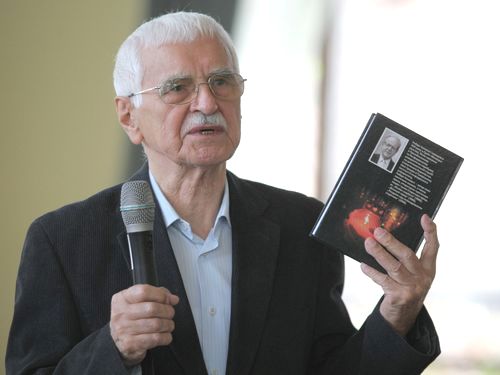“Uncomfortable” literature
167 libraries throughout Ukraine have received a special collection of books devoted to the events of 1932-33
A total of 10 Kyiv libraries received their share on November 12. The Civic Committee for Commemoration of the Holodomor Victims launched the book-donating campaign to mark the tragedy’s 80th anniversary. The thematic collection has been received by libraries in all regions of the country, with over a thousand books sent in total.
“New approaches to history appear every year, and new archives become available, so our patrons definitely need new publications. Young researchers who prepare research papers on this topic are especially interested,” chief librarian of the National Parliamentary Library’s patron service department Oksana Krulikovska said.
Foreigners wrote three out of eight books of the collection – The Great Terror and The Harvest of Sorrow by Robert Conquest and Dmytro Hoichenko’s Red Apocalypse. The philosopher and writer, member of the Civic Committee Yevhen Sverstiuk commented that foreign authors had taken up this theme because truth was the atmosphere of their spiritual lives. “The world learned explosive knowledge from James Mace [The Day’s contributor, with two books, The Day and Eternity of James Mace and Your Dead Have Chosen Me, published in The Day’s Library series, and another one appearing as pocketbook in the “Subversive Literature” series. – Ed.] and Robert Conquest. The Harvest of Sorrow is actually the principal book on Ukraine’s 20th century, written by a respected Western scholar and first published in English in 1986. I remember a BBC crew coming to Ukraine and contacting me to get them to villages where the famine’s survivors were still alive. They wanted to shoot a movie and support the book’s information with live testimony. The Soviet regime was still in power, and while they had got a green light, old barriers were still in place. These journalists had that book by Conquest with them. The book was already doing its job in the West, but we still had no knowledge of it, because it was not available. I myself had only read it for the first time in 1990.”
Hoichenko’s Red Apocalypse is a collection of memoirs of a person who lived through all the horrors of the 1930s. The manuscript was found for the first time 20 years ago in an emigre archive in San Francisco. A-BA-BA-HA-LA-MA-HA Publishers prepared it for publication in Ukraine. They had to make two concessions: firstly, to publish an adult book, because the company’s specialty is children’s literature, and secondly, to refrain from translating it into Ukrainian. “Sverstiuk asked us not to translate it from Russian, and he was correct, because the book itself shows how the author had his soul, body, and language broken,” the publisher Ivan Malkovych said. “We could not figure out for a long time what name to put on the book’s cover, because the memoirs it contained were signed by various pseudonyms, and we are still not sure if we have discovered his real name, so Hoichenko is just our assumption. The book has been selling well and gone through three printings already, a thousand and half copies each, even though Ukrainians are still afraid to read such books, because this topic is far from comfortable.”
According to Sverstiuk, all Ukrainians without exception need to read such books, because they are a kind of national memory and consciousness reconstruction.






